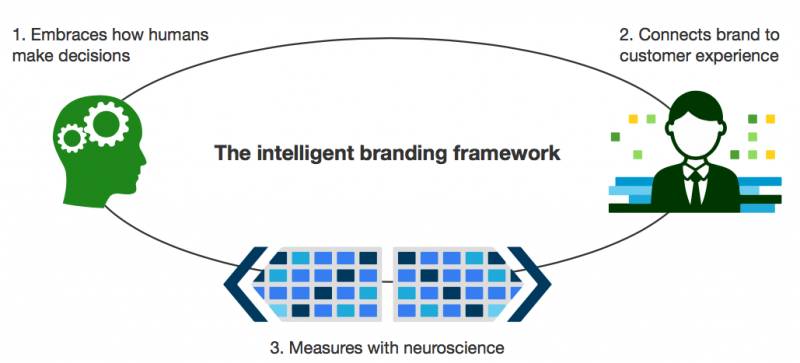A New Age Calls For A New Way To Brand – Introducing Forrester’s Intelligent Branding
The traditional paradigm of brand management has been upended by intelligent branding — a customer-centric, emotions-driven approach anchored in the neuroscience of how people form brand impressions. The full report is available for Forrester clients: The Rise Of Intelligent Branding
Why now?
Because the idea of traditional brand management is well past its prime and reflects neither the customer-obsession that characterizes today’s best brands nor the significant advances in our understanding of decision making:
- Brand is not a monolith to be managed like a product or service; it is an idea, a perception. And there are as many perceptions of a brand as there are minds that have interacted with it. Branding is about consumer and customer obsession, not about products, services, and communications.
- Brand is not rational. Traditional marketing has always assumed a rational consumer (homo economicus). However, a considerable body of work (including Forrester’s own ongoing research), has shown the primacy of emotions and the subconscious in decision making. Traditional brand management has not caught up.
- Brand is hard to measure. Traditional qualitative and quantitative brand measurement can be unpredictable because recall is fraught with error and highly prone to suggestion. Respondents struggle with “why” questions since they can’t access their subconscious which drives decision making.
Why Intelligent?
Intelligent branding goes beyond the antiquated product management approach of classical brand management. It builds on advances in psychology, behavioral economics, neuroscience, and technology to provide us with a new worldview on brand.
- Intelligent because it embraces how humans make decisions. Increased clarity on the role of memory and the impact of emotions has provided us with a better understanding of how people make decisions, including those related to brand consumption.
- Intelligent because it connects brand to customer experience. The new mental model of the human mind allows us to draw dotted lines between brand and customer experience, highlighting the interplay between these two.
- Intelligent because it measures with neuroscience. Advances in consumer neuroscience allow marketers to reduce their reliance on self-reported measures of brand perception and go straight to the source of decisions — the human mind and body.

What’s next?
Forrester clients, this report is the beachhead for a thought leadership stream based on Intelligent Branding principles:
- Get started by reading the report that lays the foundation for Intelligent Branding: The Rise Of Intelligent Branding.
- Look out for the next report in the series where I, with my colleagues from the CMO team and our data and analytics practice, lay the ground work for an emotions-driven quantitative model for measuring brands.
- Watch out for a series of follow-up reports coming later this summer and fall: a three-step plan for crafting actionable emotions-driven branding, a new analytics-based brand narrative model, an Intelligent Branding workout session to evaluate and calibrate your brand strategy, and much more.
—————————————————————
I am a brand and marketing strategist with a single-minded focus on helping CMOs and other marketing and business leaders better understand their customers and consumers. You can connect with me on LinkedIn to follow my thought leadership. Forrester clients can click here to be notified when my reports are published.
